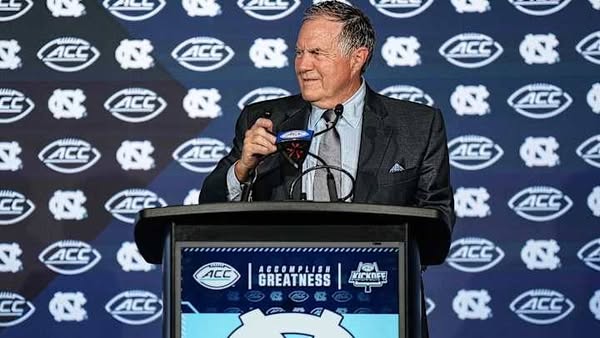He was just 35 years old when he took over the most iconic program in college basketball history. The expectations were massive. The pressure was relentless. He wasn’t just following in the footsteps of a great coach—he was stepping into the shadow of a legend. Jon Scheyer didn’t inherit a team. He inherited a legacy. A legacy shaped by five national championships, multiple Final Four appearances, and decades of dominance under Mike Krzyzewski, better known as Coach K. Duke basketball wasn’t just a job—it was a throne in the college basketball kingdom. And the question on everyone’s mind was simple: Could Jon Scheyer keep the dynasty alive?
Now, three seasons into his tenure, the answer is not only yes—it’s a resounding, emphatic, history-bending yes. After 89 wins, several deep NCAA tournament runs, and a string of top-ranked recruiting classes, CBS Sports recently declared Scheyer the young coach most likely to capture his first NCAA championship sooner than anyone expected. In a sport defined by tradition and dominated by names like Izzo, Self, and Calipari, it’s Scheyer—a former Duke captain and national champion as a player—who now looks poised to etch his own name into the pantheon of coaching greats.
It wasn’t always obvious this would be the path. When Coach K announced his retirement plan and designated Scheyer as the successor in 2021, reactions were mixed. Some applauded the continuity, noting Scheyer’s deep ties to the program and sharp basketball IQ. Others questioned the decision to hand the keys to the castle to someone with no prior head coaching experience. Replacing Coach K wasn’t just about Xs and Os—it was about managing egos, expectations, and a fanbase that only measures success in banners and trophies.
Scheyer, however, didn’t flinch. He embraced the moment with a quiet confidence that echoed the way he played as a guard during his Duke days. In his first season, the team finished with a strong 27–9 record, capturing the ACC Tournament title and earning a respectable seed in the NCAA Tournament. More importantly, they played with an identity—unselfish, disciplined, defensively focused. It wasn’t a carbon copy of Coach K’s teams, but it bore his fingerprints: toughness, chemistry, and a refusal to quit. Scheyer didn’t try to be Coach K. He focused on being the best version of himself.
By year two, something else began to emerge. Scheyer wasn’t just maintaining Duke’s standard—he was building a new chapter. The Blue Devils reeled in a second straight top-three recruiting class, featuring McDonald’s All-Americans and NBA-ready talent. He navigated the chaotic waters of the transfer portal with precision, supplementing his young core with savvy veterans who added leadership and experience. Scheyer understood the evolving landscape of college basketball—NIL deals, early draft entries, social media buzz—and adapted without compromising Duke’s foundational principles. He wasn’t just winning. He was innovating.
What’s made his early run so impressive isn’t just the win total—it’s the style in which he’s done it. Under Scheyer, Duke has maintained its status as a defensive juggernaut while unlocking more offensive versatility. The Blue Devils under his leadership play faster, spread the floor more efficiently, and emphasize positional flexibility. Scheyer has leaned into analytics, embraced player development, and shown a willingness to tweak lineups and schemes midseason to match the team’s growth. That adaptability has earned him the respect of analysts, players, and even rival coaches who once questioned if he was ready for the throne.
Then there’s the human element. Players love playing for Scheyer. Recruits don’t just come to Duke for the brand—they come because they believe in the coach. Scheyer’s authenticity is a major selling point. He’s honest in the living room. He’s energetic in the locker room. He’s steady on the sideline. He communicates with a maturity beyond his years, yet relates to players with the relatability of someone who’s walked in their shoes. This balance—leader and peer, strategist and motivator—has made him one of the most effective recruiters in the country.



